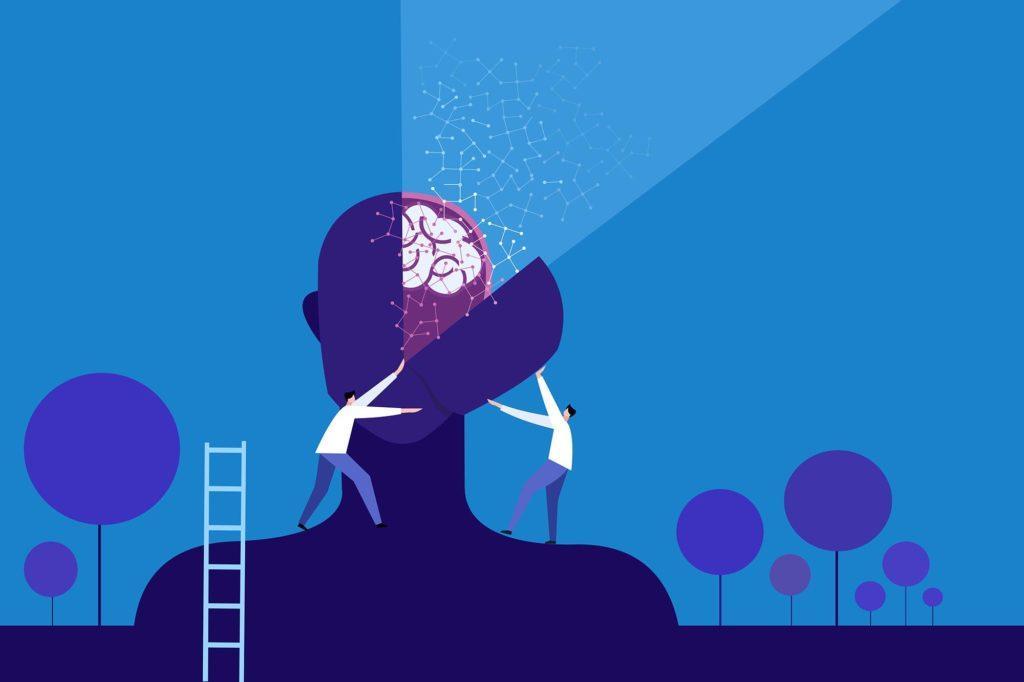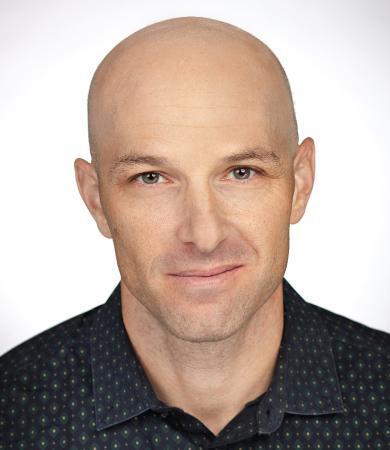APS Spotlight
New AMPPS Editor Commits to Greater Transdisciplinarity

On January 1, 2022, APS Fellow Dave Sbarra will begin his tenure as the second editor of Advances in Methods and Practices in Psychological Science (AMPPS), APS’s newest journal and, as of January 1, 2021, a fully open-access (OA) journal. A professor of psychology at the University of Arizona, Sbarra has built his career on research at the intersection of clinical, social, and health psychology, with a primary focus on close relationships and health. APS Publications Director Amy Drew recently asked Sbarra a few questions about his plans for the journal.

What goals do you have for AMPPS under your tenure? Do you envision any significant changes or additions to the journal in terms of policies or the types of research being published?
First and foremost, let me say that it’s an absolute honor to move into the position of editor in chief (EIC) at AMPPS. I’d like to congratulate Dan Simons and his entire editorial team, as well as the staff at APS and SAGE Publications, for such an auspicious start to the journal. In just 4 short years, the journal has had an incredible, meteoric rise, and the response I get when I ask most people about AMPPS is typically, “I love that journal!” This is one of the main reasons I pursued the EIC position: AMPPS has published some of my favorite papers in the last few years, and the chance to participate in and lead the continuation of this excellence—well, that was just too good to pass up. A big part of my enthusiasm for the journal is that it publishes papers that help us, as psychological scientists, do our work better. I consider myself an applied scientist who has a great interest in methods and quantitative methodology, and I view methods and statistics as the tools we need to do our jobs well. When I need to know how to use a particular tool—e.g., how to do a simulation well, how to specify a network model, or how to interpret the magnitude of my effects—I want to turn to an outlet that provides me with the most accessible and cutting-edge knowledge. This is what AMPPS is all about.
I have many goals for my term as EIC, and I’d welcome readers to check out my vision statement for the position. As outlined, my vision for the editorship rests on three goals: (1) preserving access to AMPPS and improving the accessibility of its papers; (2) maintaining exceptional content in AMPPS by promoting its papers, disseminating its findings, and actively recruiting new and innovative contributions; and (3) creating an inclusive process that brings underrepresented authors, reviewers, and editors into the fold. I’d love for people to engage with some of these ideas and to help continue the journal’s history of excellence, as well as to grow in new and exciting ways. If you have ideas or suggestions, please write me directly ([email protected]) or find me on Twitter (@dsbarra).
AMPPS will benefit from more contributions that cross psychological science with, for example, political science, economics, ecology, neuroscience, anthropology, molecular and cellular biology, genomics, and epidemiology.
Are there any topics or subject areas you would like to see more of in AMPPS? Given your background as a clinical psychologist, should readers expect to see more clinically relevant articles during your term?
Every new EIC brings a different lens to the journal they’re leading. I am an eclectic and broad scientist, and I believe that modern psychological science hinges on transdisciplinarity. Accordingly, AMPPS will benefit from more contributions that cross psychological science with, for example, political science, economics, ecology, neuroscience, anthropology, molecular and cellular biology, genomics, and epidemiology; the journal can publish new ideas concerning metascience and theory building while also finding ways to improve the integration of ethnography and mixed methods. Although I do not envision AMPPS as the home for more traditional development and validation papers, a chief goal upon stepping into the EIC position will be to conduct a slow and methodical assessment of what the readership values. I will remain very open to feedback from the editorial team about the best content mission for the journal. In many respects, it is easy to come up with topical content ideas—here are a few, for instance: papers on scientometrics, exploratory data analysis, the philosophy of science, ambulatory methods, diversity science, scientific ethics, data management, research and epistemological triangulation, causal inference, signal processing, advances in longitudinal and dynamic modeling, bioinformatics, machine learning, and neuroscientific network modeling. For me, at least, ideas for good content are not as important as the pursuit of good content. I intend to make connections with people to encourage their submissions and to incubate good ideas.
In its first 4 years, AMPPS has established itself as a leader in open, transparent scientific practices and reproducibility. What do you see as the journal’s role in these efforts moving forward?
Under my editorship, AMPPS will continue to be an absolute leader in open science. In general, I think AMPPS is doing incredibly well on this front, and we intend to stay the course. Dr. Simons and his team have already published some excellent large-scale replication studies. I hope we’ll continue to be a visible leader in registered reports and meta-science as well. This latter point is something I wish to comment on briefly here: Metascientific theory and conceptual papers will be welcome at AMPPS. Papers that help us understand the world of data better are welcome; process-style papers that make our work both more transparent and reproducible are welcome as well. Ultimately, these papers may be about how we work (or how we should work) than about methods, study design, or stats per se, but I think these could be fine contributions. I don’t want to back myself into a corner before my term has even started, so I’ll provide the obvious proviso that as long as our editors, editorial board, and/or reviewers find the piece worthwhile, it could end up in AMPPS.
I requested that we revise the associate editor structure of the journal to include a new position of deputy editor, who I hope will be a highly visible female scientist who not only shares my passion for the methods/stats content of the journal but also wants to spend time thinking through the critical issues of representation and inclusivity.
What are your plans to ensure diverse representation—among authors and the editorial board—across demographic and geographic categories and content domains, as well as among underrepresented or marginalized groups? Why is this diverse representation important for the journal?
As a White, tenured, cisgender male professor at a prestigious public university in the United States, I am in a deeply privileged and powerful position. Like many well-meaning people, it took the tragic events of the summer of 2020 to wake me out of my stupor about the importance of diversity, equity, and inclusion (DEI). In the last year, I have spent considerable time reflecting on my privilege and trying to act in ways that can improve the circumstances of people who are underrepresented in our field and to open pathways for more inclusive voices. I have tried hard to go beyond performative messaging and to create meaningful behavior change in how I engage in and with DEI topics on a weekly basis.
My pursuit of the AMPPS editorship is the pursuit of a leadership position in the field, and I am compelled in this effort to bring discussions of inclusivity to the forefront of our journal. In my negotiations with APS around the editorship, I requested that we revise the associate editor structure of the journal to include a new position of deputy editor, who I hope will be a highly visible female scientist who not only shares my passion for the methods/stats content of the journal but also wants to spend time thinking through the critical issues of representation and inclusivity. When it comes to the editorial team, as well as possible, I want to include expertise from colleagues of different genders, racial/ethnic backgrounds, and geographic regions. Although the deputy editor and four associate editors for the journal are not set yet, I can say that I have invited four women and three Europeans into the masthead team. If you feel the journal can do a better job addressing some of these topics and have ideas for improvement, I’d love to hear from you directly.
There are two other social justice issues related to the journal that I’d like to comment on here. First, much is written about the strengths and limitations of the OA publication model. The current OA model at AMPPS is ambitious and ensures global access to the journal’s content. That model, however, is unsustainable. Article processing charges shift inequities in the publication ecosystem from the users to the authors. APS and SAGE Publications currently subsidize our OA costs; the journal can and will provide waivers if authors do not have funding to cover the $1,000 OA fee. (So, please, request a waiver if you need one, and if publishing with us is cost prohibitive or you have any other concerns, contact me directly.) However, the big picture issue is that we need to come up with an equitable and sustainable OA model that works for authors and that will work for APS/SAGE going forward.
Second, psychological science has much to contribute to the global climate crisis. The climate crisis is a global emergency for the planet, and it is a global health emergency as well. Addressing climate change is critical for the promotion of social justice; the climate crisis is disproportionately impacting people from lower-resource communities and in the Global South. AMPPS can’t be everything to everyone, and it’s unlikely I am going to succeed in realizing all the ideas I am throwing against the wall for the journal, but I spend hours every day thinking about the climate crisis, and any professional activities I take will have this issue in mind. I don’t know how to integrate this topic into the journal just yet, but we will do something related to the climate crisis. Anything less would be a waste of time and energy.
Lest I end on a sour note, let me reiterate my enthusiasm for moving into the EIC role at AMPPS, my hope that we will continue to publish exciting and innovative papers, and my desire to bring underrepresented reviewers, authors, and editors into the fold of the journal.





APS regularly opens certain online articles for discussion on our website. Effective February 2021, you must be a logged-in APS member to post comments. By posting a comment, you agree to our Community Guidelines and the display of your profile information, including your name and affiliation. Any opinions, findings, conclusions, or recommendations present in article comments are those of the writers and do not necessarily reflect the views of APS or the article’s author. For more information, please see our Community Guidelines.
Please login with your APS account to comment.